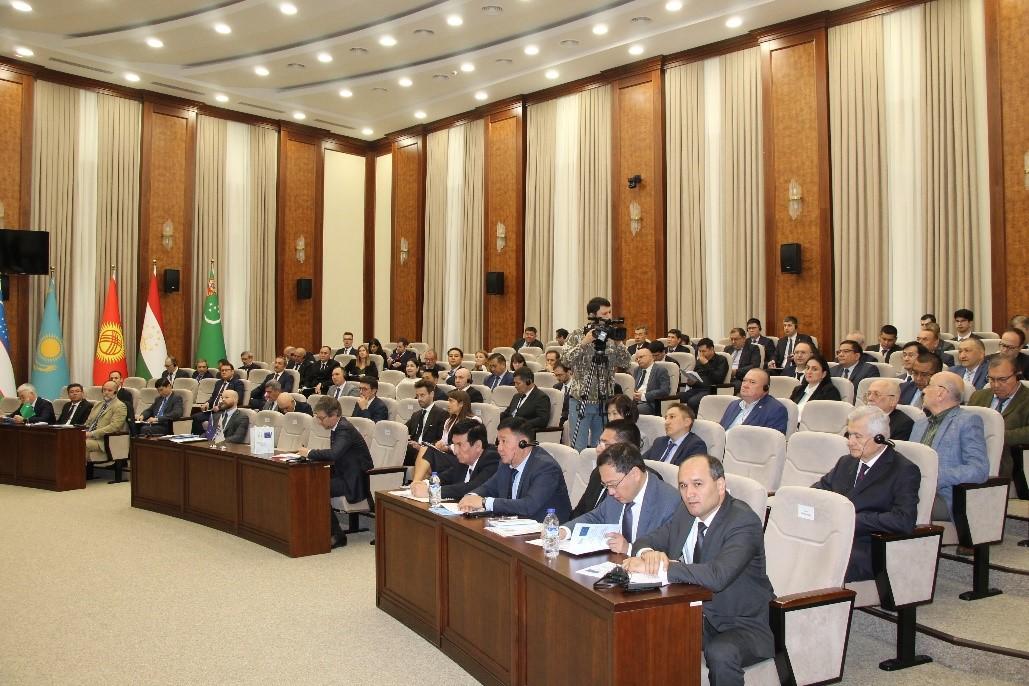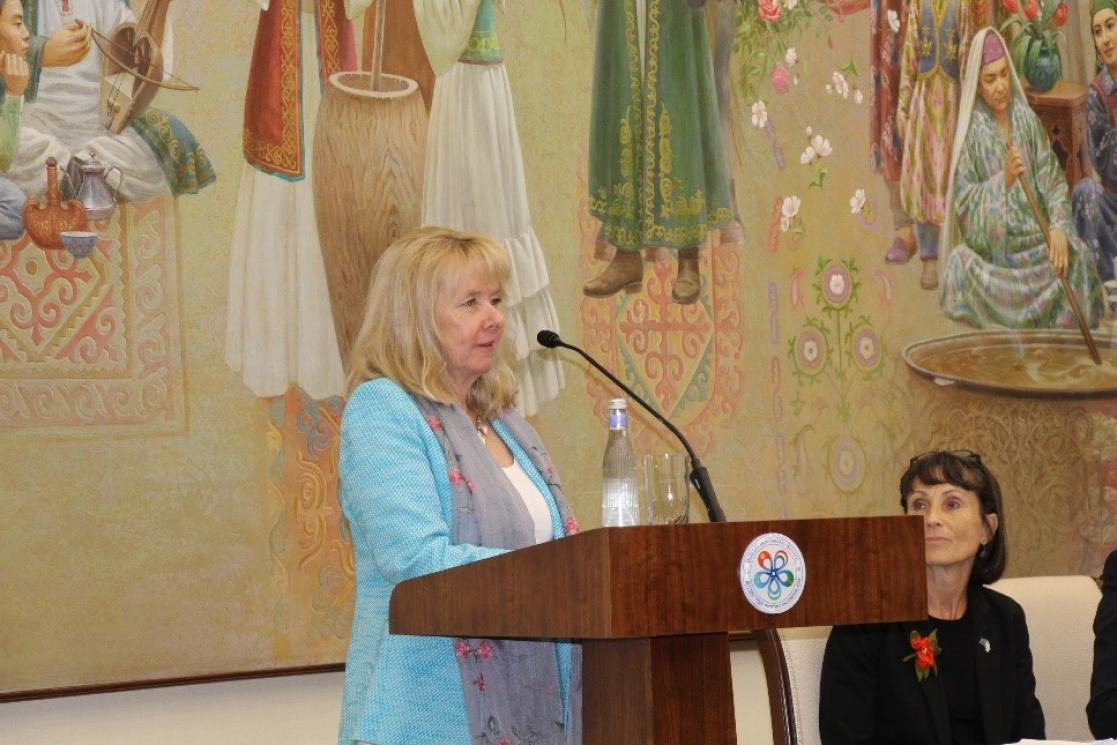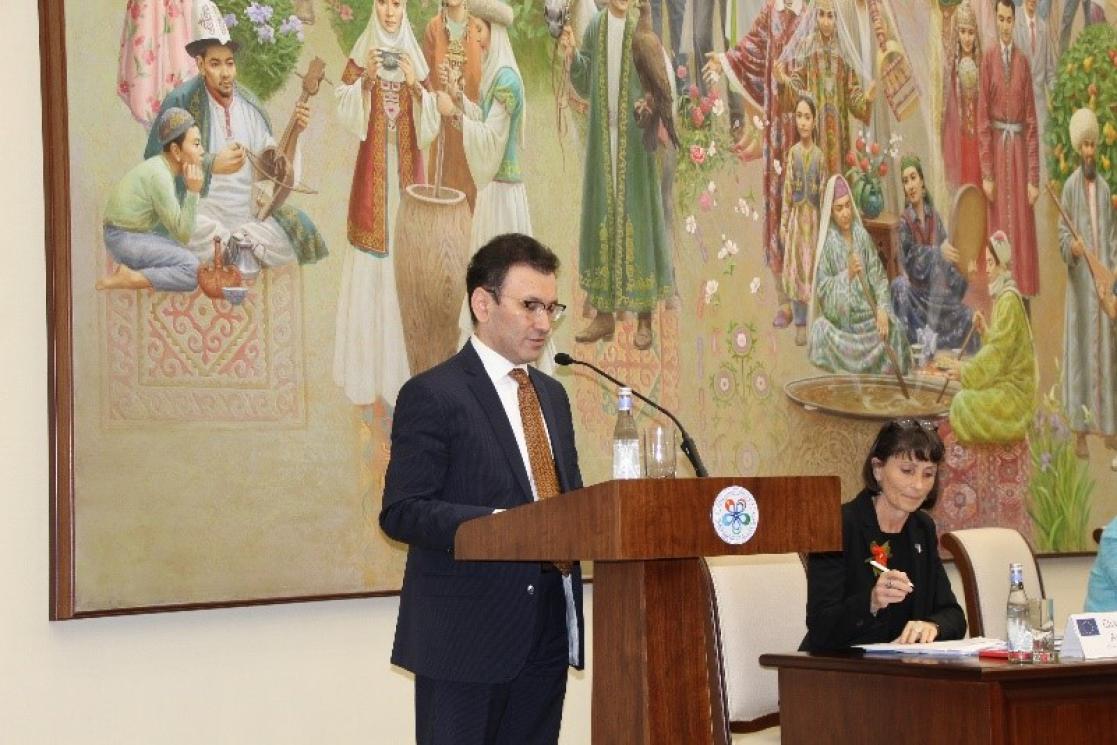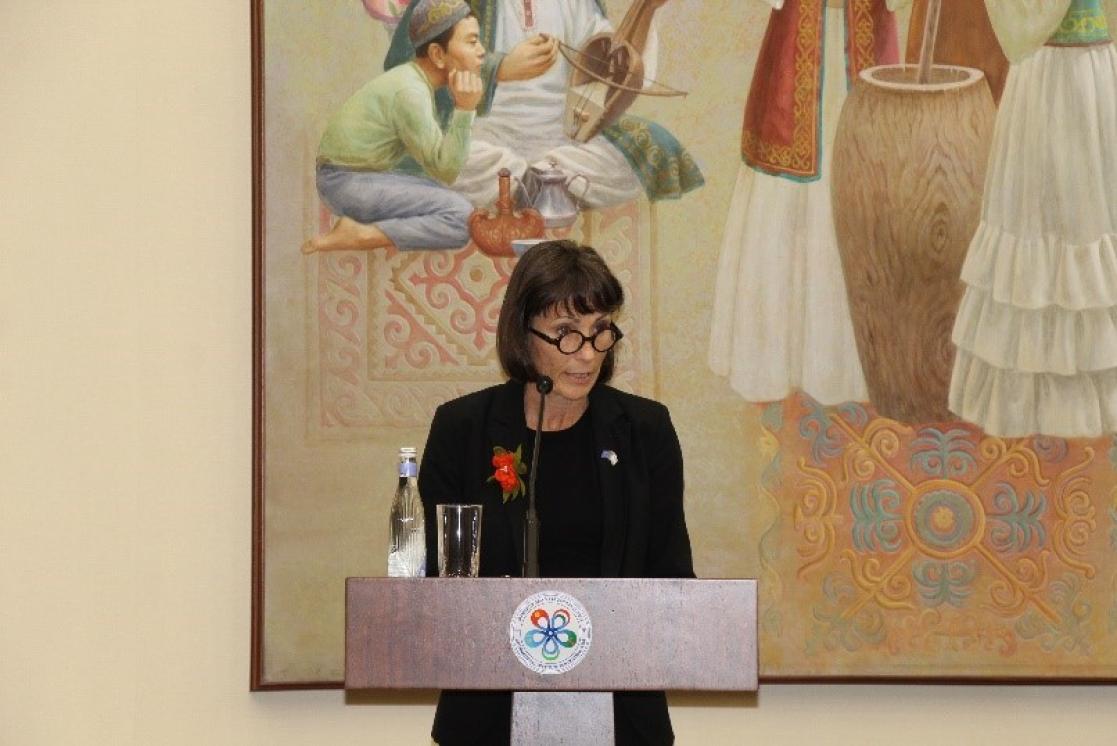Expert Conference on Security Issues in the Central Asia-EU Format Held in Tashkent

On May 24, the International Institute for Central Asia (IICA) hosted an expert conference on the topic "Central Asia – the European Union: a new agenda for security cooperation". The event was co-organised by the IICA and the European Union (EU). The forum was attended by more than 100 representatives of ministries and departments, diplomatic missions, leading research organizations of Central Asian countries and the European Union.
The European side was represented by EU Special Representative for Central Asia Terhi Hakala; EU Counter-Terrorism Coordinator Bartjan Wegter; EU Ambassador to Uzbekistan Charlotte Adriaen; Ambassador Nicolas Nihon, Chairman of the EU Council Counter terrorism working group and Director of the Counter Terrorism department of the Belgian Ministry of Foreign Affairs; as well as programme coordinators and managers of EU funded projects and other experts from EU structures that work in EU - Central Asia relations.
The Central Asian countries were represented by experts from analytical structures, as well as representatives of sectoral ministries and departments.

IICA
Opening of the conference, the European Union Special Representative for Central Asia Terhi Hakala recalled,
“I was present at the Leaders Meeting in Cholpon-Ata in 2023 when President of Uzbekistan H.E. Shavkat Mirziyoyev proposed this conference. We have achieved a lot in our regional cooperation since then and I am glad that with this conference we further deepen our security cooperation. I am convinced that dialogue of today will help us to respond better to rapidly changing security challenges that both the EU and Central Asia face”.

IICA
Director of the IICA Javlon Vakhabov highlighted,
“Currently, the security sector belongs to one of the key areas of our cooperation, where we have a good history of interaction. In this context, there is an increasing need to strengthen export exchange and practical interaction between the security structures of the countries of the region and the European Union and, accordingly, to revise traditional approaches to cooperation in this area”.

IICA
Deputy minister of the Ministry of Foreign Affairs of the Republic of Uzbekistan, Madrahimov Muzaffarbek underlined,
“Today's realities confirm the need for a deeper understanding of the indivisibility of threats to the security of Europe and Central Asia, and our common interests in combating transnational threats.”.

IICA
The EU Counter-Terrorism coordinator, Bartjan Wegter, said
"To fight terrorism effectively, we must cooperate across borders, regionally and internationally. This conference is a great opportunity to discuss how Europe and Central Asia can work together, where we can support each other and how we can learn from each other”.

IICA
EU Ambassador to Uzbekistan Charlotte Adriaen stated:
“In an increasingly interconnected world, no country nor region can tackle the emerging unconventional security threats alone. During today’s discussions, we heard from security experts and practitioners from the EU and Central Asia and took stock of the ongoing cooperation and existing projects”.
During the conference, experts underlined that security is one of the key areas of cooperation between the countries of Central Asia and the EU, within the framework of which more than two hundred regional events were held as part of EU-funded security-related projects, thousands of highly qualified specialists were trained, and border and customs checkpoints were modernised.
Issues of cooperation between the EU and Central Asia within the framework of security cooperation programmes such as BOMCA, CADAP and LEICA, and others, were also discussed. The forum participants shared suggestions for measures to enhance the practical effectiveness of these projects.
In addition, the participants stated the need to strengthen the fight against the online spread of terrorist ideology and propaganda, and called for the consistent implementation of UN Security Council resolutions to counter terrorism.
In conclusion, the conference participants emphasized that in the context of strengthening existing challenges and the emergence of new ones affecting the sustainable development of Central Asian countries and the EU, it is extremely important to develop new approaches to cooperation between the European Union and Central Asia in such key areas as combating terrorism and organized crime, strengthening cybersecurity, and preventing violent extremism and human trafficking.
